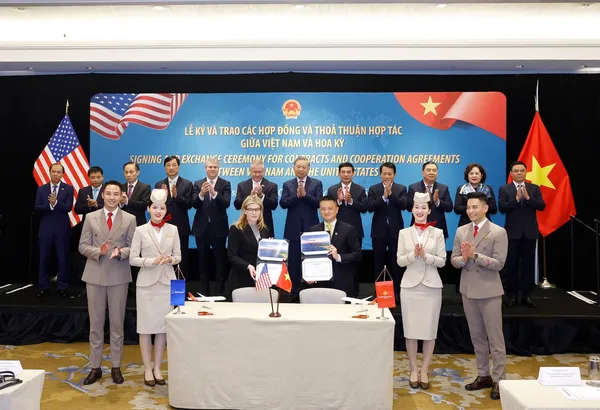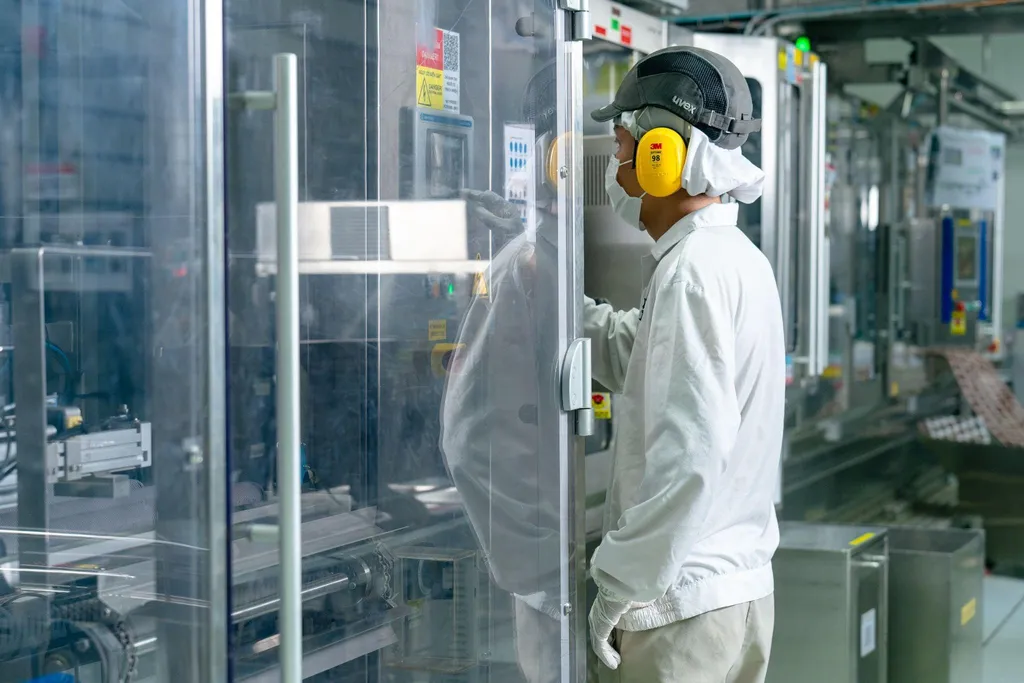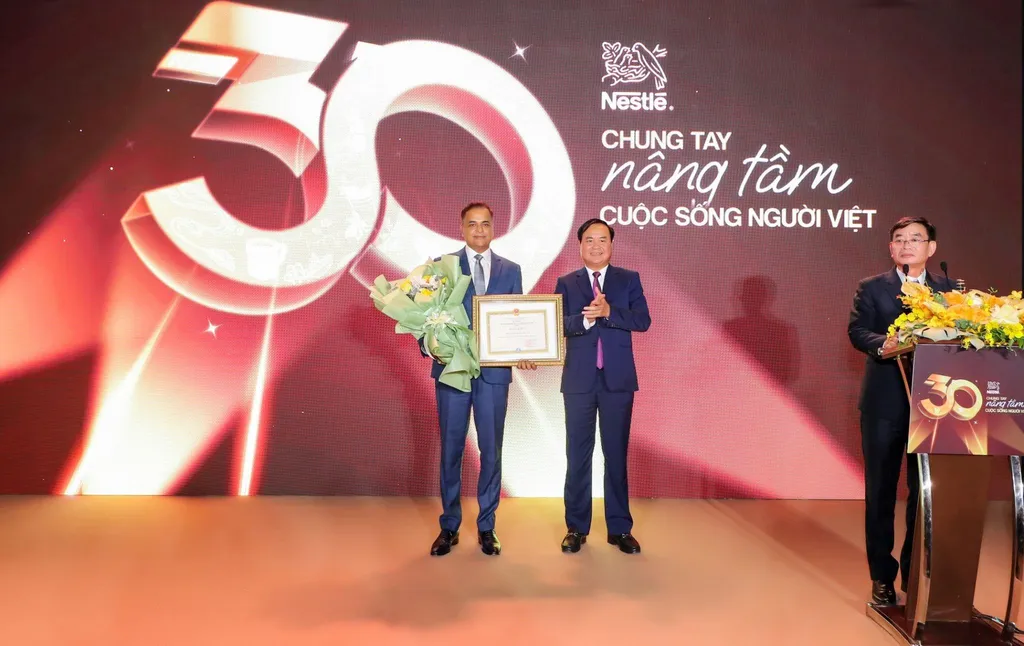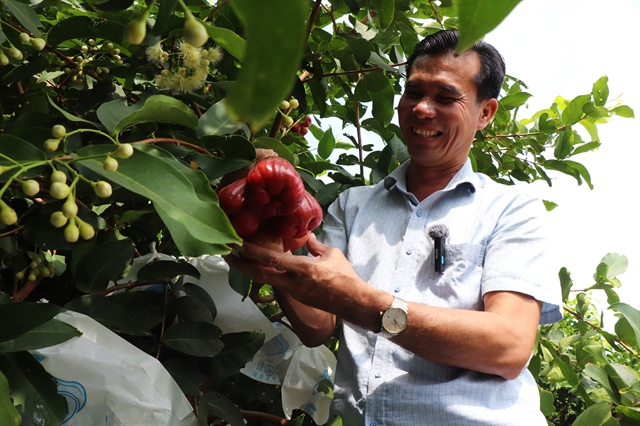 Brandinfo
Brandinfo

Governments are not just seeking capital, but long-term partners—investors who are committed to sustainability, resilience, and inclusive development. Việt Nam, now one of Asia’s most dynamic economies, is positioning itself to attract such FDI through its green growth strategy and forward-looking policies.
Nestlé, a global food leader, is one of the clearest examples of this commitment in action. In April 2025, Nestlé Vietnam marked its 30th year of operations in the country by announcing an additional US$75 million investment into its Trị An coffee factory in the southern province of Đồng Nai. This brings the company’s total investment in Việt Nam to approximately $904 million.
This investment highlights the strategic importance of Việt Nam within Nestlé’s global operations and reflects its long-term vision for sustainable growth in partnership with the country.
Việt Nam as a strategic coffee powerhouse
Binu Jacob, CEO of Nestlé Vietnam said: “Việt Nam plays three key roles in our global operations. First, it’s one of our main sources of green coffee, sourcing a significant share of Việt Nam’s total coffee exports. Second, Việt Nam is home to one of our most efficient and advanced coffee processing hubs, which supports our exports. And third, we cater to a rapidly growing domestic coffee market with locally tailored products – like Nescafé Café Việt and the newly launched Nescafé, which are designed specifically for Vietnamese tastes.”
Nestlé’s Trị An factory is not only central to its operations in Việt Nam but also a key node in its global supply chain.
“Our investment in the Nestlé Trị An coffee factory began in 2010 and we’ve been expanding it steadily ever since. Over the last four years alone, we’ve added new investments almost every year. The reasons are clear: Việt Nam is one of the world’s largest sources of Robusta coffee and this factory is the most efficient coffee processing facility in the entire Nestlé network. That’s thanks to the cutting-edge technology we’ve adopted, the strategic location, and the incredible people who run it,” Binu added.
 |
| With the new capital injection, the total investment in the Trị An factory for 2024–25 will exceed VNĐ4.3 trillion ($175 million). |
“The team here is agile, open to innovation and highly skilled. This is also our most diverse coffee factory – we produce spray-dried coffee, freeze-dried coffee, decaffeinated coffee and capsule coffee, all under one roof. There’s no other Nestlé factory in the world with that range,” he said.
“Last year, we announced a $100 million investment. This year, we’re adding another $75 million. This funding will go toward scaling up capacity and introducing advanced technologies, like freeze-dried coffee production, which is highly complex and high-value.”
“Over the last four years, we’ve doubled our processing capacity, expanded our capsule lines and continuously pushed innovation. This factory ranks among the world’s best in that metric, thanks to process optimisation and constant experimentation.”
Nestlé’s approach in Việt Nam has always been centered on long-term local investment rather than import-based models. “From the beginning, we chose to establish our presence in Việt Nam through local manufacturing rather than imports. That commitment started with a factory and has guided us ever since.”
Creating shared value with communities and the environment
“Economically, we’ve invested more than $900 million since we first set up operations. We now operate four factories across the country and employ more than 2,300 people. We’re also consistently ranked among the top 100 taxpayers in Việt Nam.”
 |
| Nestlé Vietnam was honoured with a Certificate of Merit from the Minister of Agriculture and Environment in recognition of its outstanding contributions to the development of Vietnamese agriculture and rural areas. |
“ Annually, we buy about 20 percent of all the coffee produced in Việt Nam – but it’s not just about buying. On the farming side, we work closely with farmers to improve sustainable practices, reduce pesticide use, conserve water and increase yields. Thanks to these efforts, farmers' incomes have risen by 30 to 150 per cent.”
Nestlé’s NESCAFÉ Plan is central to these efforts. “Farm sizes in Việt Nam are typically small – often less than three hectares – so maximising output sustainably is essential. We’ve helped farmers diversify their crops with intercropping systems that include avocado, pepper trees. It’s good for the soil, boosts farmers' income and supports long-term sustainability. By end of 2024, the program provides sustainable farming training to more than 467,000 farmer participants.”.”
Nestlé Vietnam is also a pioneer in sustainable packaging and waste management. “Even before the Government introduced Extended Producer Responsibility (EPR), we committed to using recycled PET. We’ve partnered with social enterprises and recycling centers to collect, clean and reuse plastics.”
“Our operations are also designed for sustainability. The Trị An factory is a zero-waste-to-landfill site. We recycle wastewater and minimise our environmental footprint wherever possible.”
Empowering communities, especially women and children, is another priority. “We’ve signed a five-year partnership with the Việt Nam Women’s Union in 2022 to empower rural women with digital, entrepreneurial and nutritional training. Many become entrepreneurs or improve their family livelihoods thanks to these skills.”
“For example, through our partnership with the Việt Nam Women's Union, we’ve helped train 25,000 women leaders. These women pass on their knowledge of nutrition and entrepreneurship to over two million households in 18 provinces.”
“We also partner with the Ministry of Education and Training on a programme called Activ Vietnam (Năng động Việt Nam), which promotes physical activity among children. In the past five years, over 20.7 million children in 49 provinces have joined, with 4.9 million annual nutritious, micronutrient-fortified meals provided.”
When asked about Nestlé Vietnam’s greatest achievement over the past 30 years, Binu was clear: “Without a doubt, it’s our coffee story. For the world’s largest food and beverage company – and the world’s largest coffee company – to rely so heavily on a country like Việt Nam is something we’re incredibly proud of.”
“We've helped make its coffee farming practices among the most sustainable in the world. Who would have thought that a relatively small country could set the benchmark for global coffee sustainability?”
“That’s what truly excites us. We're not only contributing to the environment and improving farmers’ livelihoods, but we’re also putting Việt Nam on the global map as a leader in responsible coffee production.”
As Việt Nam continues to evolve and embrace the green economy, long-term partners like Nestlé will remain essential—not just as investors, but as allies in building a more sustainable, inclusive future for generations to come.




